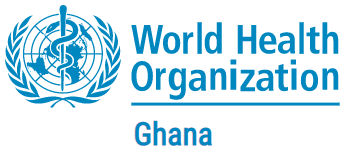Samuel Kofi*, 19, from Takoradi in Ghana’s western region discovered he was HIV positive in November 2022. A situation that left him in shock and in complete denial as he thought death was staring him in the face.
“I did not suspect I had HIV when I went to do the test that Wednesday,” Kofi recounts the day he knew his status. “But when it came out positive, even after a confirmation test, I concluded that was the end of life for me.”
The thought of living with HIV for the rest of his life among family and friends was also a serious worry for Kofi as he knows too well the stigma that still exists against people with HIV. But all his fears were dissuaded following extensive counselling by health service providers at the Kwesimitsin Municipal Hospital, where he was also immediately put on HIV treatment.
In Ghana, there are currently 354 927 people living with HIV, with an estimated 16 574 new HIV infections in 2022.
Over the years, the Government of Ghana, through the Ghana AIDS Commission and the National AIDS Control Programme, with support from World Health Organization (WHO) and other partners has made significant efforts towards strong HIV response.
The efforts have led to HIV testing and treatment services in Ghana being free in all government health facilities and some selected private health facilities.
In addition, healthcare workers have been trained and supported to provide HIV care and prevention services without stigma and discrimination. The country is also leveraging innovative approaches in the fight against HIV, including HIV self-testing and pre-exposure prophylaxis have been made available free of charge. These efforts over the years have resulted in a 38% reduction in new HIV infections since 2010.
“Our response to HIV has been very robust. But we continue to explore with our partners strategies that address prevention and treatment options in Ghana,” says Dr Fred Nana Poku, the Director for Technical Services, Ghana AIDS Commission.
WHO has remained a key partner leading and coordinating essential technical support and guidance to the country for the adaptation, implementation, and evaluation of evidence-based policies for the HIV response. This includes facilitating continuous national dialogue of diverse stakeholders including civil society organizations, government and donors to enable synergy of efforts. WHO has been instrumental in supporting the country to mobilize over US$ 100 million from the Global Fund to Fight AIDS, Tuberculosis and Malaria and the United States President’s Emergency Fund for AIDS Relief to support the HIV response in Ghana.
“At WHO, we believe that a multi-pronged approach is key to accelerating progress towards the 2030 global HIV/AIDS goals,” say WHO Representative to Ghana, Prof Francis Kasolo. “Therefore, our ongoing interventions are seeking to complement and bolster Ghana’s HIV response”.
Furthermore, in July 2023, WHO, US Centers for Disease Prevention and Control and the United Nations Joint Programme on HIV/AIDS(UNAIDS) embarked on a joint implementation support mission with the Ghana AIDS Commission and the National AIDS Control Programme to a number of HIV hotspots in Ghana. The mission engaged stakeholders and communities on strengthening HIV response in Ghana. It also underscored the need to put communities at the centre of HIV response.
“We recognize the critical role of communities in the fight against HIV. Therefore, some of our interventions are seeking to put communities at the centre of efforts to provide a conducive environment and antiretroviral treatment for people already with HIV,” says Dr Frank Lule, the Team Lead for Communicable and Noncommunicable Diseases at WHO Ghana.
People like Kofi are already being impacted by the increasingly stronger HIV response. More than a year after knowing his status and getting all the support from the health service providers, Kofi is preparing to enrol at a university to pursue his dream of becoming an accountant.
“I am very happy with my life right now because the medications are keeping me healthy,” he says. “All my dreams are on track and so I encourage everyone to test regularly for HIV. If you are positive, there are medications to keep you healthy and if you are negative you can continue with all the preventive measures to protect yourself.”
*Name changed to protect identity
Distributed by APO Group on behalf of World Health Organization (WHO), Ghana.

